 Bikes were a big winner in USDOT’s recent round of grant awards for the highly competitive Reconnecting Communities and Neighborhoods Program.
Bikes were a big winner in USDOT’s recent round of grant awards for the highly competitive Reconnecting Communities and Neighborhoods Program.
By Martina Haggerty
Senior Director of Local Innovation
PeopleForBikes
Editor’s note: This text was first published online by PeopleForBikes on April 4, 2024 and is shared in The Bike Lane with permission.
The U.S. Department of Transportation (USDOT) recently awarded $3.3 billion through the Reconnecting Communities and Neighborhoods Program to fund projects that reconnect neighborhoods long divided by highways, railroad tracks, and other transportation barriers. More than just infrastructure funding, this program represents a monumental opportunity to use bike infrastructure to bridge physical and social gaps while fostering equity and revitalization in communities across the U.S.
For decades, highways, urban renewal, and practices like redlining have isolated communities, severing vital connections to job centers, businesses, parks, schools, and community resources. The repercussions of such division have been profound, particularly for Areas of Persistent Poverty and Historically Disadvantaged Communities, which are often disproportionately affected by underinvestment, isolation, and pollution. From adding new transit routes to capping highways and constructing new bridges and bike paths, projects funded through the Reconnecting Communities and Neighborhoods Program are critical in reversing the impacts of this damage, knitting together neighborhoods, and increasing access to important destinations for people walking, biking, and using public transit.
With more than 1,400 bike projects proposed or planned nationwide, the demand for bike infrastructure is clear. Initiatives like Reconnecting Communities and Neighborhoods Program provide much-needed funding to these projects, building on other federal programs funding bike infrastructure like the Safe Streets and Roads for All (SS4A), Rebuilding American Infrastructure with Sustainability and Equity (RAISE), Recreational Trails, Highway Safety Improvement, and Surface Transportation Block Grant programs.
To learn more about proposed or planned bike projects in your community, check out PeopleForBikes’ National Bike Project Tracker, part of our Great Bike Infrastructure Project.
Of the 132 awarded projects, at least 60 include bike infrastructure, spanning nearly 30 states from coast to coast featuring a wide variety of urban, rural, and tribal communities. Below are a few of the projects that will open bike infrastructure access to millions of Americans in the coming years thanks to funding from this program:
I-395 Underdeck and Heritage Trail | Miami, Florida
Through the I-395 Underdeck and Heritage Trail Project, the Florida Department of Transportation aims to transform a highway barrier by creating a 33-acre public open space and trail system beneath Interstate 395, uniting previously divided neighborhoods.
Brickline Greenway Midtown I-64 Crossing | St. Louis, Missouri
The Brickline Greenway initiative in St. Louis aims to unite neighborhoods through accessible multi-use paths, addressing historical racial disparities and reconnecting 14 predominantly Black neighborhoods impacted by the construction of Interstate 64. As part of the project, the Midtown I-64 Crossing will increase access to jobs, services, and economic opportunities, while the 10-mile greenway network will further connect to parks, business districts, and cultural institutions.
The Museum Trail | Jackson, Mississippi
The Museum Trail planning project in Jackson, Mississippi, seeks to extend a multi-use trail and greenway linking cultural, economic, educational, and recreational assets across the city currently divided by highways and arterial roadways. This project phase will extend the trail through downtown and West Jackson.
Vision 2028 Plan | Los Angeles, California
In Los Angeles, grant funding will support 60 new Metro Bike Share stations, 37 miles of bus corridor improvements, and help fill gaps in the city’s active transportation network to improve neighborhood connectivity.
Twinbrook Pedestrian and Bicycle Bridge | Rockville, Maryland
The construction of a new pedestrian and bicycle crossing bridge in Rockville will reconnect the city’s Twinbrook neighborhood to employment areas and retail amenities along Rockville Pike, the city’s primary commercial hub.
Atlanta BeltLine to Flint River Trail | Atlanta, GeorgiaThe BeltLine to Flint River Trail will connect communities, schools, job centers, MARTA stations, and bike infrastructure, building on the success of the Atlanta BeltLine while fostering economic growth.
Manhattan Trail System | Gallatin, Montana
The Manhattan Trail System study in southwestern Montana will explore the feasibility of a multi-use trail to connect the rural communities of Manhattan, Logan, and Three Forks.
Pyramid Lake Paiute Tribe Bike Path | Pyramid Lake Reservation, Nevada
The Pyramid Lake Paiute Tribe will construct a new bike path along an old railroad bed to connect the remote communities of Sutcliffe, Nixon, and Wadsworth on the Pyramid Lake Reservation in Nevada. This new facility will improve connectivity within the tribal communities, enhance access to recreational areas, support economic development, and create opportunities for cultural interpretation and learning about the Tribe’s heritage.
I-81 Project | Syracuse, New York
The I-81 Project in Syracuse, New York, includes the creation of new bike paths and multimodal improvements to increase connections, enhance safety, and boost economic opportunity in Downtown Syracuse and surrounding neighborhoods. The new bike infrastructure is part of the larger project to replace the elevated Interstate 81 highway with over 100 acres of new neighborhood streets, development, and parks.
Uniting Neighborhoods and Transit Opportunities | Everett, Massachusetts
This planning grant will allow the City of Everett to study the feasibility of Bus Rapid Transit (BRT) and commuter rail expansion, as well as new bike connections to the nearby Northern Strand and Wellington Trails, mitigating environmental and health concerns in an underserved community.
Walnut Cove Greenway | Walnut Cove, North Carolina
This planning grant will allow the community to advance plans for new trails linking East Walnut Cove Community Park to downtown.
Virginia Beach Trail Phase 1 | Virginia Beach, Virginia
As part of the Virginia Beach Trail project, this grant will fund the construction of a 3.2-mile shared-use path along a former railroad right-of-way, promoting equitable access to transportation, enhancing pedestrian and bicycle safety, and reconnecting underserved communities with economic opportunities. Phase I of the project extends through Virginia Beach’s town center, with future phases aiming to connect to the oceanfront.
The success of the Reconnecting Communities and Neighborhoods Program marks a pivotal moment in addressing long-standing disparities and divisions in communities nationwide. As momentum grows and more communities join the movement to repair past harms, it heralds a promising future where our streets serve as vibrant spaces for all and bike infrastructure is used to help reconnect communities and foster equity.
Signup For The Bike Lane Newsletter
